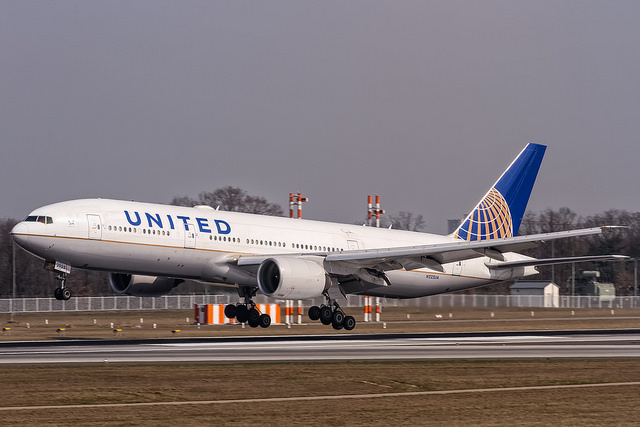Business and Economy
Jet fuel spike sends 2Q profit lower at United Airlines

United reported Tuesday that second-quarter profit was $684 million, down 17 per cent from a year ago. But that was higher than analysts expected, and United raised its earnings forecast for the rest of 2018. (Photo: Oliver Holzbauer/ Flickr, CC BY-SA 2.0)
DALLAS — Rising fuel prices are cutting into profit at United Airlines, although strong travel demand is helping the airline cope by pushing travellers’ prices higher as the summer travel season hits full speed.
United reported Tuesday that second-quarter profit was $684 million, down 17 per cent from a year ago. But that was higher than analysts expected, and United raised its earnings forecast for the rest of 2018.
Planes are full for much of the day, giving United more pricing power. United said that passenger revenue per seat and per mile — a stand-in for fares and fees — rose 3 per cent over a year earlier.
Passengers should brace for more price increases.
United predicted that the stand-in figure for average prices will rise by between 4 per cent and 6 per cent through September.
The airline also slightly reduced its planned growth for the rest of the year in response to rising fuel prices. That seemed to signal United’s willingness to eliminate flights that are only marginally profitable with current fuel prices — something investors are pushing airlines to do.
The spot price of fuel has jumped more than 50 per cent in the past year, according to Energy Department figures. United’s second-quarter fuel bill was $2.39 billion, up 43 per cent in one year.
Chicago-based United, the third-biggest airline by revenue behind American and Delta and financially a laggard for many years, is pursuing business customers by adding connecting flights at its mid-U.S. hub airports in Chicago, Denver and Houston. United’s previous management team had eliminated many of those flights to cut costs.
United has steadily gotten better at flying on time — ranking fourth among U.S. airlines last year in on-time arrivals, up from eighth in 2015. Analysts at UBS say their study of customer reviews from an online-search site shows that better reliability seems to be boosting customer satisfaction at United, although rival Delta Air Lines still rate higher.
United Continental Holdings Inc. reported its second-quarter results after the market closed Tuesday. Net income fell $137 million, from $821 million a year earlier, despite an 8 per cent increase in revenue.
The company said that adjusted profit — excluding what United considers non-repeating gains and expenses — was $3.23 per share. That easily beat the $3.07 average forecast from eight analysts surveyed by Zacks Investment Research.
CEO Oscar Munoz said they were great results in the face of higher fuel prices. In a statement issued by the company, he called the numbers “the strongest evidence yet that our strategic growth plan is working.”
The airline raised its forecast of full-year adjusted profit by 25 cents, to between $7.25 and $8.75 per share. Analysts were forecasting $7.72 per share.
The prediction contrasted with Delta, which last week cut its forecast for 2018 profit by $1 per share due to higher fuel spending, and American, which said that domestic fares were turning out to be a bit lower than it expected.
United executives plan to discuss the results with analysts and reporters on Wednesday morning.
United shares gained 36 cents to close at $72.62. During the after-hours session, they were up another $2.38, or 3.3 per cent. The stock has bucked a downward trend in the industry — it’s up nearly 8 per cent in 2018.





















